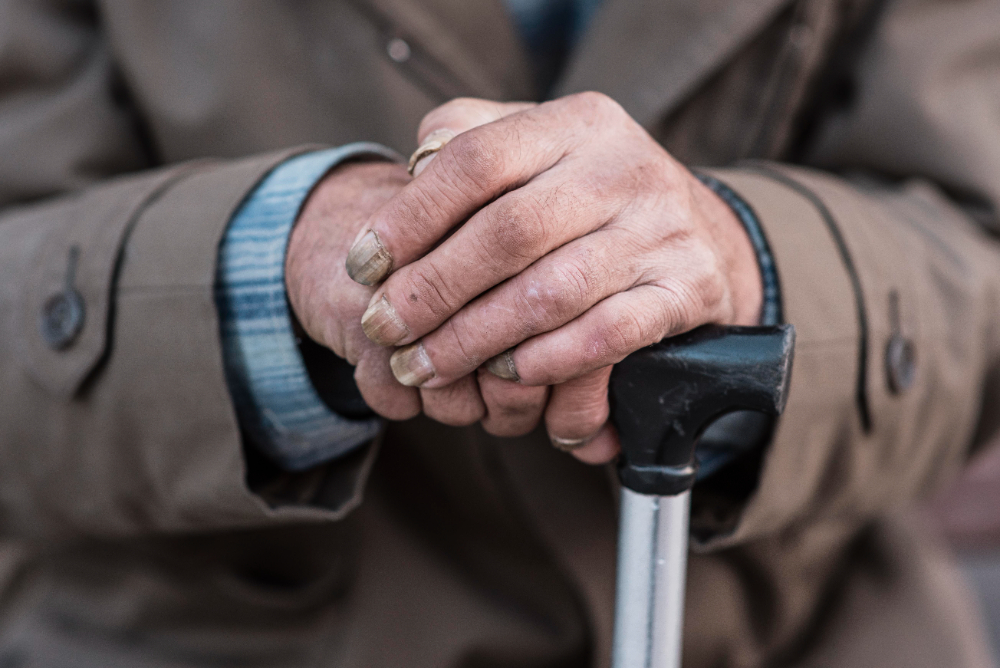
The Capital Authority recently published a proposal to greatly tighten the conditions for assessing a person's nursing status. Just before the tightening, we provide a full explanation of how the various agencies currently assess a person's nursing status.
The cost of hiring a personal caregiver ranges from 10,000 to 12,000 NIS per month. The cost of private hospitalization in a nursing home is between 13,000 and 20,000 NIS per month. In other words, for most of us, becoming a caregiver (i.e., dependent on the help of others) is an unbearable financial burden.
The only way for most people to cope with the heavy expenses is by receiving assistance from external entities.
These bodies are usually: the state (mainly through the National Insurance Institute and the Ministry of Health), health funds (mainly through their long-term care insurance), and private long-term care insurance companies (in the event that the patient purchased a policy in advance).
These three bodies currently use (12/2024) the same medical tests to assess a person's nursing status, although the qualifying criteria differ from branch to branch: the ADL test, when a person has difficulty functioning on a daily basis, and the MMSE test, when a person suffers from a dementia-like condition ("mental exhaustion"). It should be noted that eligibility granted by a particular body does not bind the other bodies. For example, a person may be eligible for assistance from the National Insurance Institute due to mental exhaustion after being recognized by a National Insurance Institute medical committee, but an expert from the insurance company may reach a different conclusion after examining the person. However, we will emphasize right away that Nursing assessment By insurance companies, it is done according to substantive rather than quantitative tests.
According to the Capital Market Authority's directives, in order to prove that a person is in a nursing home situation, he must prove one of two things: either he is unable to function in daily life, or he suffers from mental exhaustion.
The main test for assessing a person's functional status is the Activities of Daily Living (ADL) test. The test examines the person's degree of independence in performing six basic daily activities (eating and drinking, dressing and undressing, bathing, mobility, bowel control, and moving between lying and standing positions).
Currently, a person will be recognized as a dependent if they are unable to perform a substantial part (at least 50%) of three of the six basic activities on their own.
In recent weeks, the Capital Markets Authority published draft guidelines, which proposed changes that could significantly tighten the conditions for recognizing a person as a nursing patient. Thus, according to the Capital Markets Authority's proposals, only a person who is unable to perform a substantial part of at least four daily activities on their own, instead of three activities currently, will be considered a nursing patient.
Moreover, according to the proposed guidelines, only when an insured person is unable to wear clothing that covers both the upper and lower parts of his body will he be considered unable to perform the action independently. Although officially, the proposed guidelines are relevant only to the long-term care insurance of health funds, which is in deficit, there is no doubt that the entire long-term care insurance industry will be affected by them.
As mentioned, the second possibility for recognition of a nursing home condition is if the person suffers from a dementia-like condition called "mental exhaustion."
Mental exhaustion is defined as a medically diagnosed cognitive impairment, plus three cumulative conditions: decreased orientation to time and place, impaired judgment, and the need for third-party supervision most of the time, in order to maintain one's well-being or the well-being of those around one.
The main test for diagnosing mental fatigue and determining its level is the Mini Mental State Examination (MMSE). The test is usually administered by a psychogeriatrician or psychiatrist, and consists of a short questionnaire. The questionnaire addresses several aspects, including time orientation (what day is it? What season is it?), calculation ability (performing a relatively simple calculation activity), memory (repeating 3 words), step-by-step execution (performing a simple three-step instruction), and more.
A score of over 24 points on the test indicates normal functioning. A score of 18-24 points indicates the beginning of the process of mental exhaustion, and a score of 0-17 points indicates the existence of mental exhaustion.
As you can see, even in their current form, the tests for assessing a nursing home condition are not easy to pass. Especially when the private insurance companies (which also operate the long-term care insurance of health funds) have a built-in interest in the insured failing. To this end, All methods are kosher. , including presenting an elderly person who needs supervision all day as "semi-independent" (even the court didn't understand what was meant...), and determining that a young person who lost all his fingers was considered fully functional.
Accordingly, it is highly recommended to file a claim, to all entities, through a lawyer with experience in the field of nursing care. The lawyer who specializes in the field will ensure that the insured submits all relevant documents and tests, will ensure that the client arrives prepared for the tests, will stand by them during their administration, and will do everything necessary so that the client receives the full rights to which he is entitled in the shortest possible time.
Moreover, even if the claim is rejected, one should not give up. More often than not, a lawyer specializing in long-term care insurance will succeed in changing the ruling and allowing his client to receive the full rights he is entitled to, despite an initial rejection.